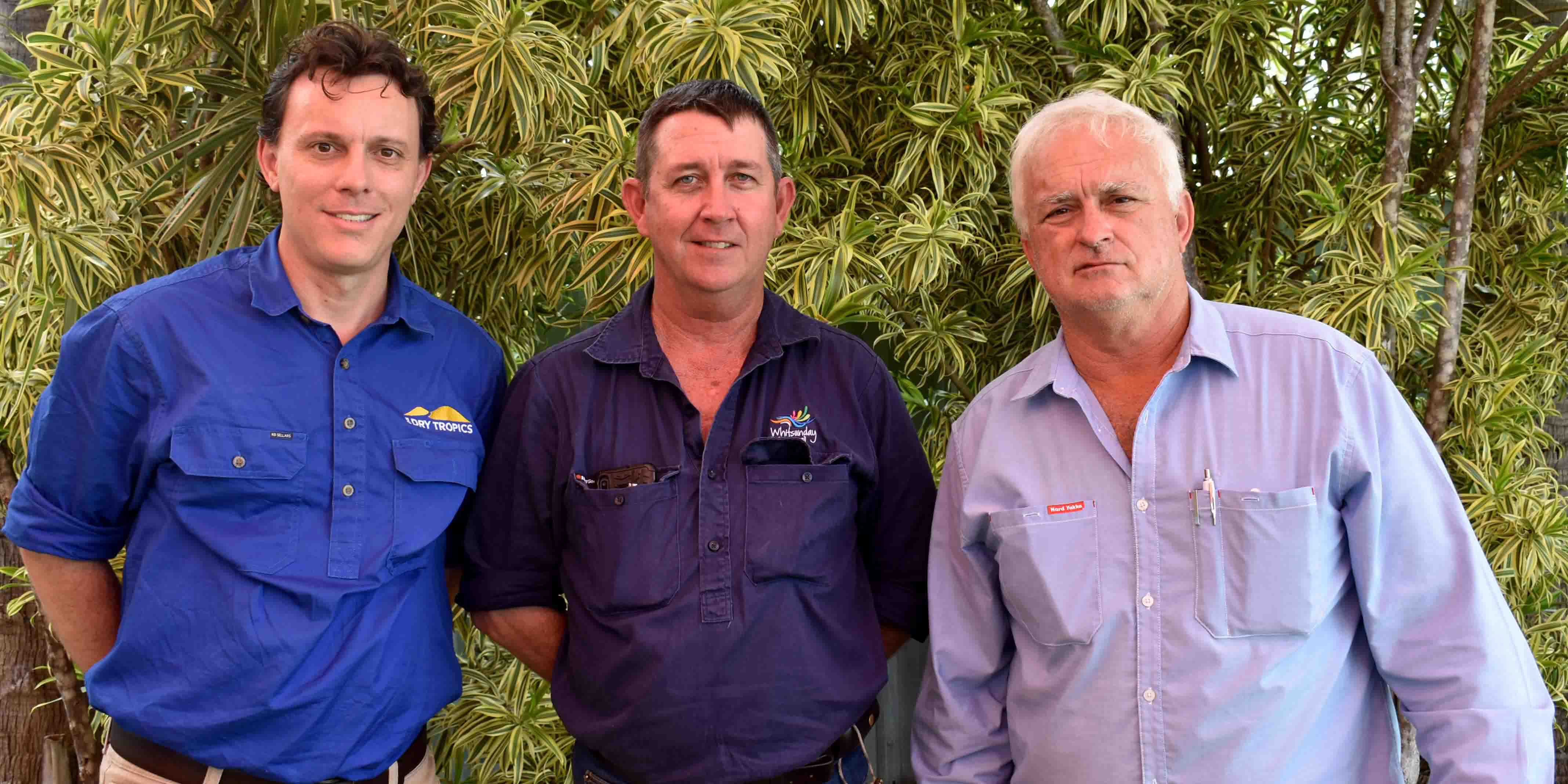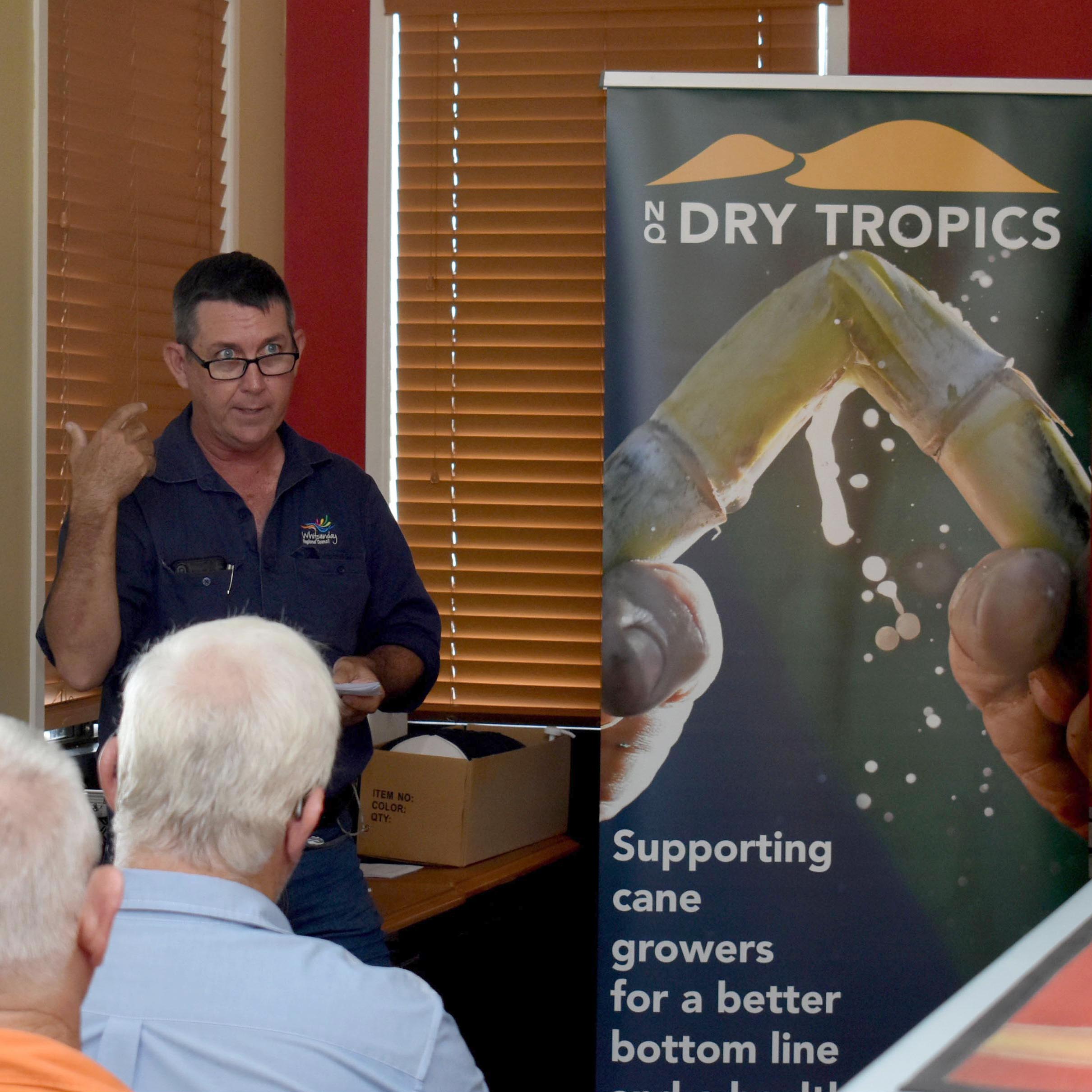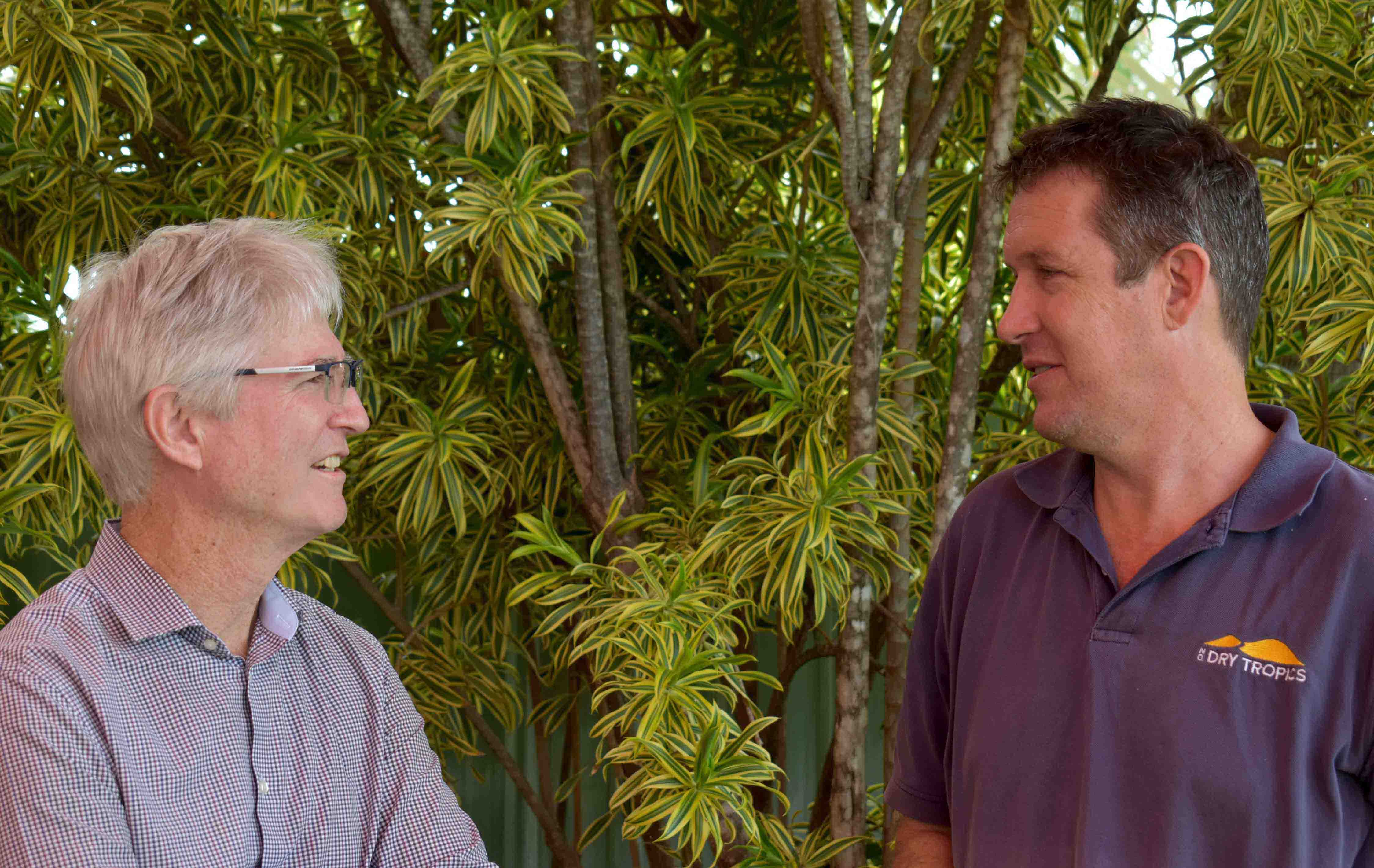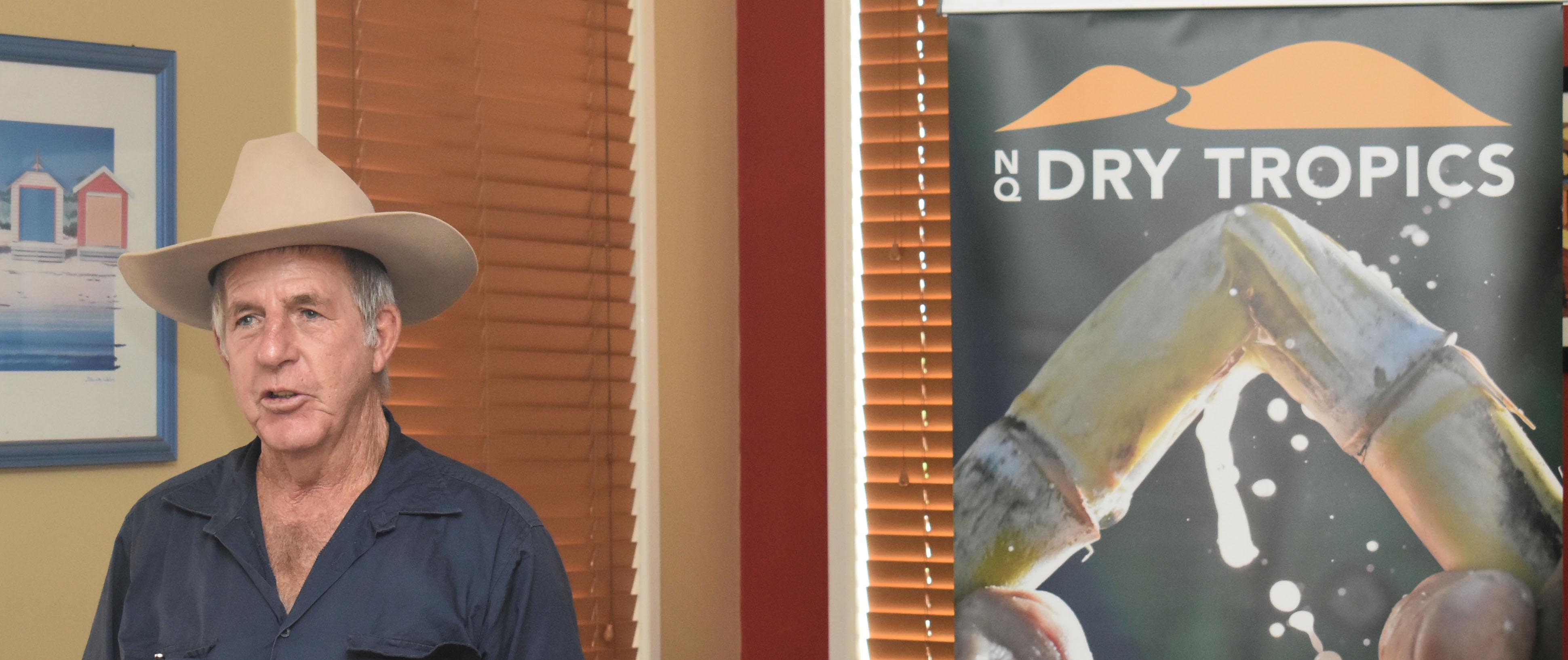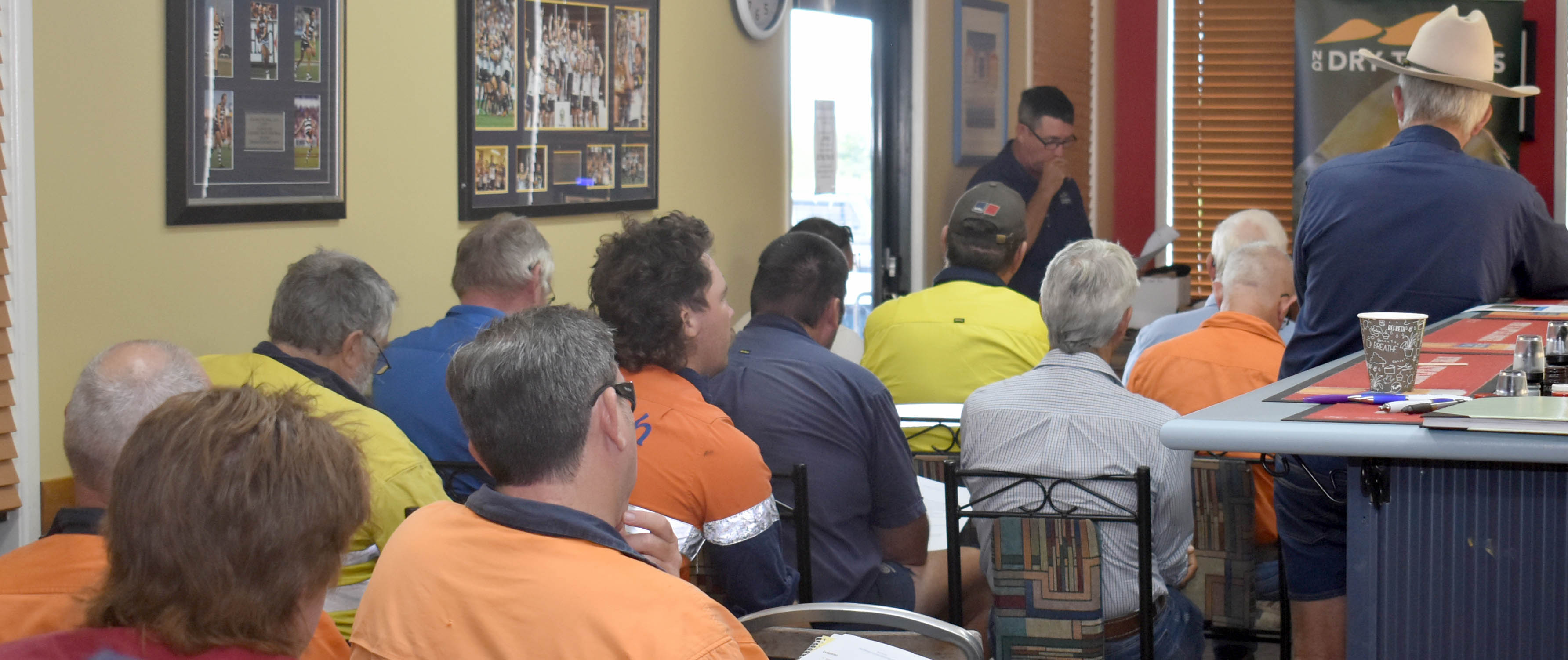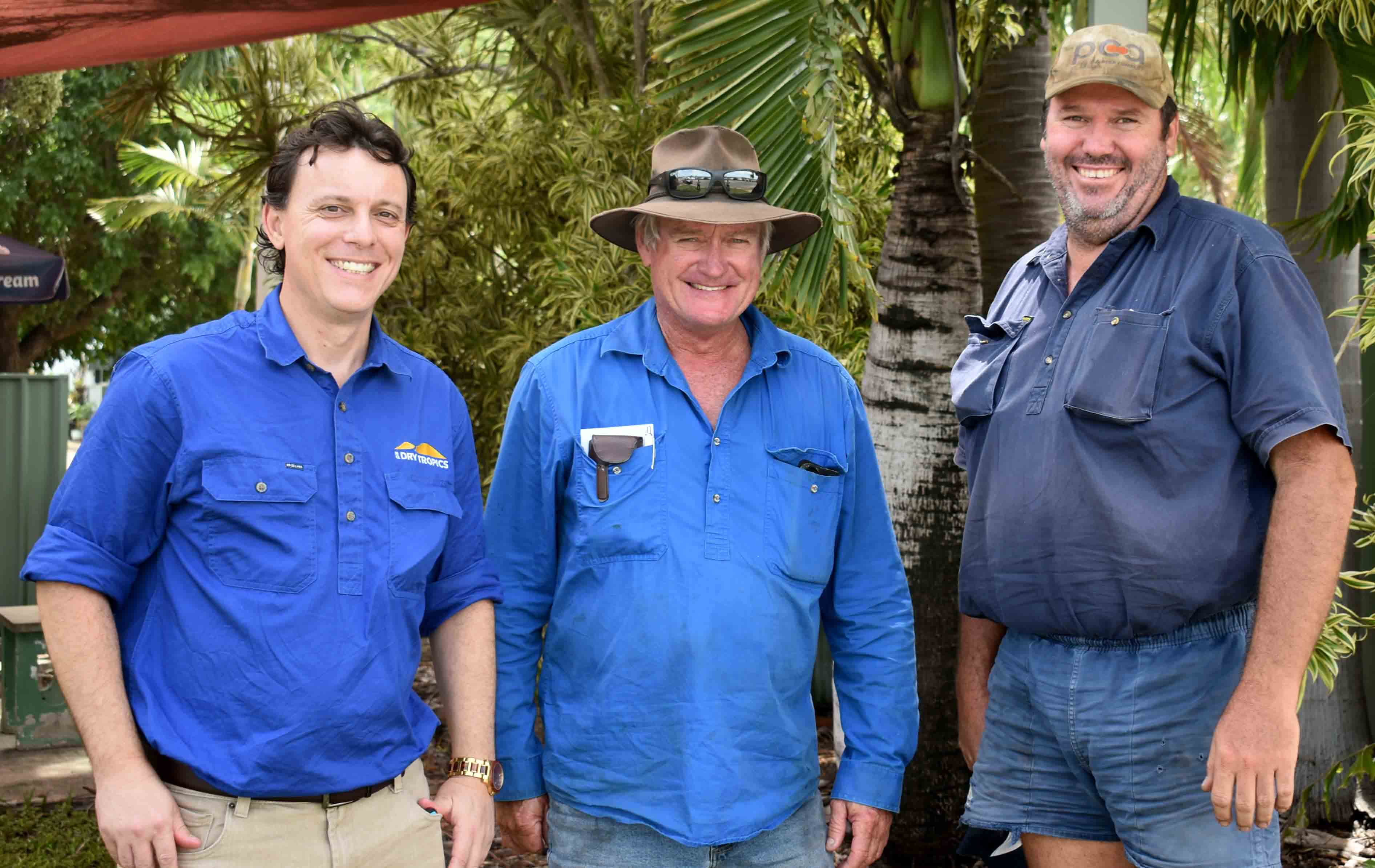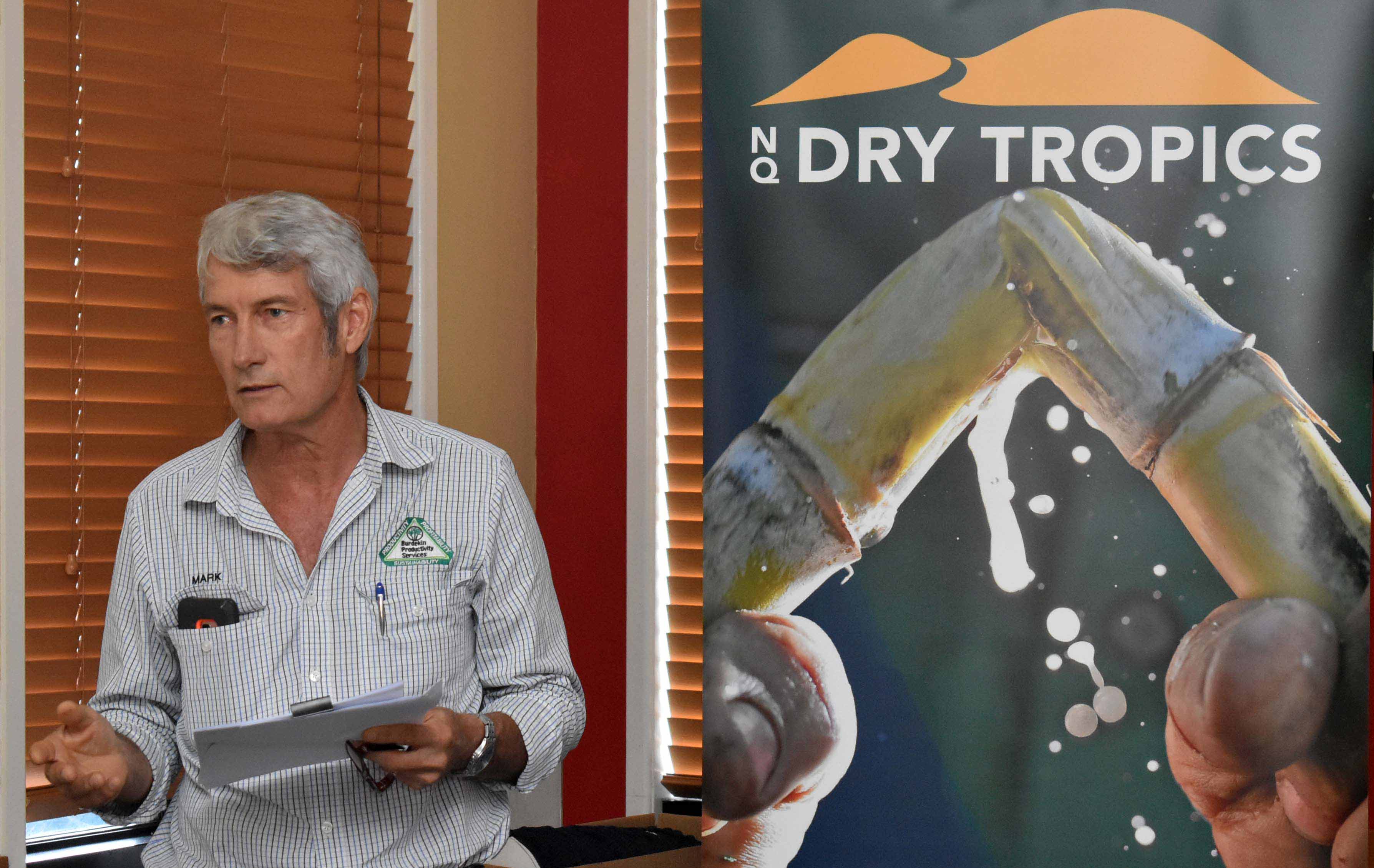Cane farmers learn benefits of collective action for feral pig management
Cane farmer Robert Boccolatte is fed up with the damage caused by feral pigs on his property at Saltwater Creek.
“In a bad year pigs will eat between 500kg to a tonne of cane, but that’s not the only problem,” Mr Boccolatte said.
“It costs time and money to replace damaged fence lines, and grade areas of the farm the pigs have disturbed.
“Their digging also creates ideal conditions for chinee apple to grow.”
Bren Fuller, Land Protection Officer, Whitsunday Regional Council, spoke about the benefits of forming cluster groups.
Mr Boccolatte was one of more than 25 Saltwater Creek cane farmers who recently attended an NQ Dry Tropics event at the Inkerman hotel focused on tackling the threat of feral pigs.
The information day was part of the Reducing Burdekin Sediment project, funded by the Queensland Government’s Natural Resources Investment Program.
Attendees were advised to join forces with neighbours to form a local “cluster group” to improve the cost-efficiency and effectiveness of feral pig management.
NQ Dry Tropics Project Officer Brad Holt said the idea was for a group of landholders to pool resources and coordinate control efforts across multiple properties.
“Instead of individual farmers simply focusing on their own patch, they can cover a bigger area by working together and sharing the cost of aerial control,” Mr Holt said.
“Contributing a few hundred dollars a year towards a common effort is a sound business decision that will save money down the track.”
Mr Holt said that as well as impacting crops, feral pigs damaged creek banks, causing sediment runoff that reduces water quality in local waterways and the Great Barrier Reef.
“The Reducing Burdekin Sediment project has funded fencing on several properties around Saltwater Creek to prevent pigs from accessing cane, protect important wetlands, and provide a barrier to trap the animals against during control activities such as aerial shooting,” Mr Holt said.
“Mobilising farmers to work together in a cluster group is an important next step in the fight.”
Collinsville grazier Jim Hillier told attendees that his Bowen River cluster group had significantly reduced pig numbers on local properties.
Collinsville grazier Jim Hillier told growers about the success of his Bowen River cluster group, whose members had significantly reduced the impacts of pigs from their properties.
“It’s the best thing we’ve ever done,” Mr Hillier said
“It’s the most efficient way I have found to control pigs — we all pull together to contribute funds to get the chopper in and we cleared them out.
“We keep in contact within the group so that if there’s a sighting on someone’s property we let each other know.”
NQ Dry Tropics works to strategically manage invasive weeds and animals as part of the Burdekin Dry Tropics Regional Pest Management Group (RPMG), alongside partners from local and state government, industry and landcare.
RPMG member Burdekin Shire Council was represented at the Inkerman event by Dan Mulcahy, Manager, Environmental Health Services.
Mr Mulcahy highlighted the pig-management services council offered to farmers, including a year-round 1080 baiting service, and aerial shooting around coastal areas.
Bren Fuller, a Land Protection Officer from RPMG member Whitsunday Regional Council, told participants that successful cluster groups required a “champion” to mobilise members and maintain momentum.
He said it could take a couple of years for the effort to bear fruit, which was why a long-term commitment was required from group members.
“Feral pigs can reproduce extremely quickly, damaging crops and infrastructure, and spreading weeds and disease, Mr Fuller said.
“Females can reproduce at 25kg, and in two to three years populations can double.
“You may need to hit them hard and then reduce the frequency of control over time, but you can’t walk away or they will return — if you stop you may as well not start.”
Mark Rickards, Commercial Manager at agronomy company Burdekin Productivity Services, also spoke at the event about discounts available to growers who join a cluster group.

